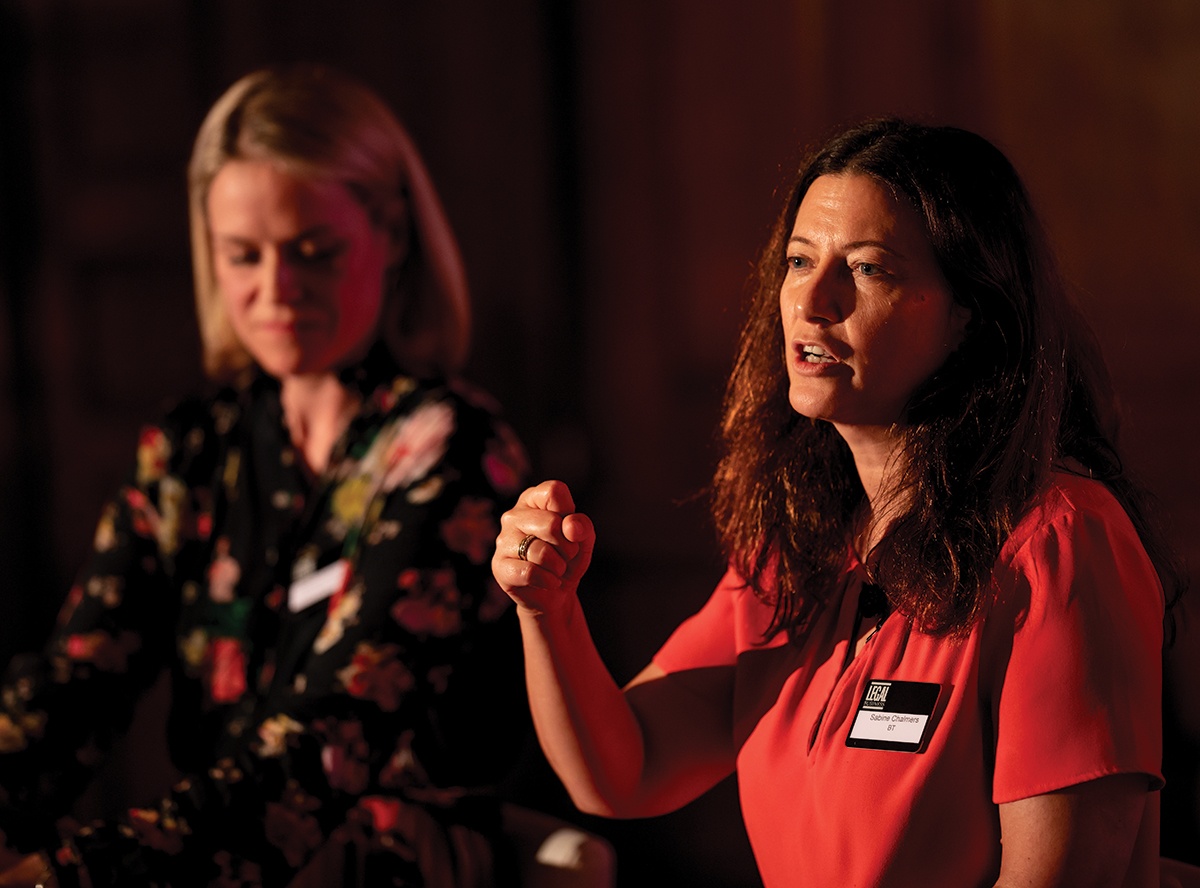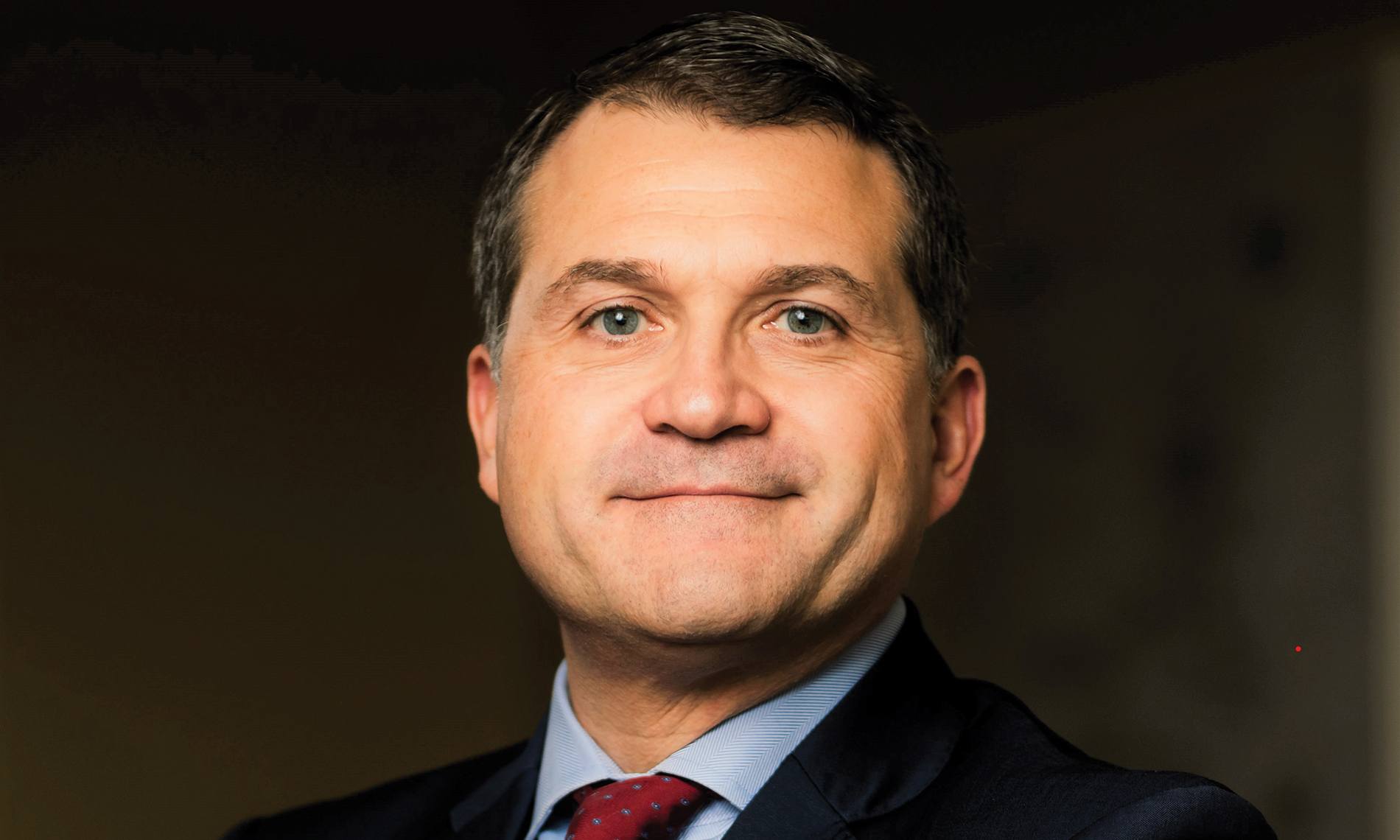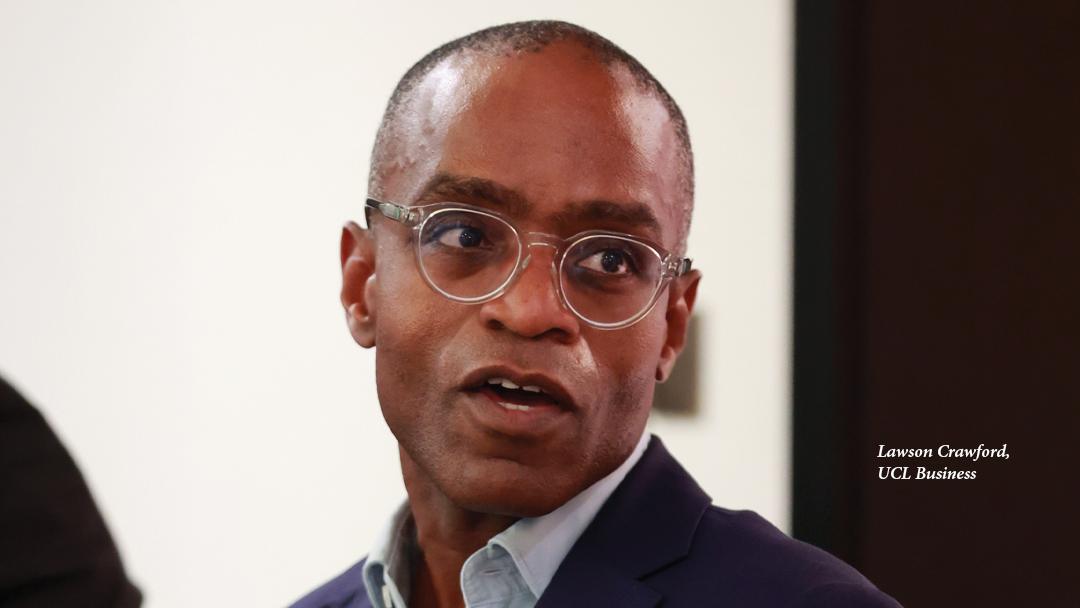How do you know when you have a brand advantage?
By Sholto Lindsay-Smith, Founding Partner and Director of Brand Strategy at Industry, an international brand and business consultancy.
As the management mantra goes, ‘you can’t manage what you can’t measure’. Law firms often undertake evaluation of their brand in pockets throughout the organisation by teams in HR, customer experience, internal and external communications. What is often missing is a 360-view which can summarise the brand strategy, identify brand-blockers and determine where to invest efforts in building brand advantage. This article considers the importance in assimilating this information to build a lasting brand advantage.
Continue reading “How do you know when you have a brand advantage?”
Significant matters – Autumn 2023
BT acknowledges diversity efforts of Addleshaw Goddard
BT Group has announced that Addleshaw Goddard has already been appointed to its next legal panel, which will be confirmed in full in 2024. The firm has been recognised as the firm on BT’s existing panel, which has driven diversity and inclusion across all areas of its organisation most effectively.
This follows BT’s 2020 commitment to prioritise diversity and inclusion in the selection process for its next legal panel. It promised that the firm with the best D&I results would have its place on the roster automatically renewed. Addleshaw Goddard was singled out as showcasing the strongest range of ideas, attention to detail, innovation, and overall enthusiasm for its D&I initiatives.
During its review BT also highly commended existing panel members BCLP, Osborne Clarke and CMS, naming these firms as D&I champions.
General counsel, director of regulatory affairs and company secretary, Sabine Chalmers (pictured) said of the appointment: ‘When we began looking at our next legal panel, we wanted to ensure that all the firms involved are playing an active role in building a more diverse and inclusive legal industry. Throughout the assessment process, we were delighted to see that this is an issue that many firms are already taking seriously. We’re delighted to be able to confirm that against very strong competition Addleshaw Goddard was selected as the leading firm in driving D&I, and we look forward to working with them as a part of our next legal panel.’
Cadent Gas refreshes legal advisers
Cadent Gas, the UK’s largest gas distribution company, has updated its legal panel due to evolving market demands. The panel will run for four years.
The panel has three lots of work – regulatory, corporate finance and governance and general services. It has expanded the number of firms appointed on its regulatory and general services lots due to changing business needs.
CMS, Dentons, Eversheds Sutherland, Gowling WLG and Linklaters have been reappointed to their existing lots, with CMS gaining an additional place on the corporate finance and governance lot and Linklaters gaining an additional place on the regulatory lot.
Addleshaw Goddard has been newly appointed to the panel, taking a place on the regulatory and general services lot and DWF has been appointed to the general services lot for the first time.
Diane Bennett, general counsel and company secretary, said: ‘We are delighted to have appointed a new legal panel for Cadent. We will look to those firms to work with our in-house legal team to support our business as we head towards and into the next regulatory price control period and progress our net-zero ambitions.
Sainsbury’s reappoints legal panel
Following a recent review of its legal panel, Sainsbury’s has reappointed eight existing panel firms: DAC Beachcroft, CMS, Dentons, Herbert Smith Freehills, Linklaters, Morton Fraser, TLT and Winckworth Sherwood.
Sainsbury’s is the second largest supermarket in the UK and its brands include Habitat, Argos, Nectar and Tu.
DAC Beachcroft’s strategic relationship partner for Sainsbury’s, Nathan Butcher, said: ‘Sainsbury’s is a significant and much-valued client, and we are looking forward to strengthening our deep and trusted relationship with its legal teams and continuing to provide advice on the complex and challenging issues currently facing the retail sector.’
Mark McQuillan, TLT’s client relationship partner for Sainsbury’s said: ‘We’re delighted to have been re-appointed to Sainsbury’s legal panel across a wide range of disciplines for the next three years. A key aspect of the Sainsbury’s panel is that it has, for many years, operated as a true legal community of all the firms and the in-house legal team allowing for real, meaningful collaboration. We are excited to be able to continue to work as part of that community, to really help deliver Sainsbury’s key objectives through 2026.’
The next panel review is scheduled for 2026.
Freshfields survey says employers should refresh whistleblowing training
Surveying more than 2,500 managers in the UK, US, Germany, Hong Kong, and France, Freshfields global whistleblowing survey has found that less than 50% of respondents believe the ‘average employee’ at their organisation would know what actions they should take if a whistleblowing incident was to occur. The survey results highlight the need for stronger speak-up culture in organisations backed by robust policies and processes.
The survey also found that just under 28% of respondents believe the #MeToo movement has led to companies improving their whistleblowing procedures. 29% feel that agile working has led to fewer instances of whistleblowing as employees were less likely to hear or see issues than if they were in the office. However, 29% of respondents felt that employees would likely feel more comfortable blowing the whistle due to the added privacy of homeworking.
Moves that matter
- Zac Katz, the former head of legal and corporate affairs at Age of Learning, has joined Grindr as its general counsel and head of global affairs. Reporting to CEO George Arison, Katz is tasked with building a global affairs function that collaborates with Grindr for Equality, aiming to enable a more tolerant world for Grindr users and the broader LGBTQ community. He previously served as chief of staff and chief counsel of the federal communications commission in the Obama administration and was a corporate and litigation associate at Munger, Tolles & Olson before moving in-house.
- The Guardian US has appointed Kai Falkenberg as its first-ever general counsel. Reporting to Steve Sachs, the Guardian US managing director, and Betsy Reef, the Guardian US editor, Falkenberg will be the principal legal adviser to the Guardian US. She was previously executive vice president, general counsel and corporate secretary at G/O media and before that acting commissioner and first deputy commissioner of the NYC Mayor’s Office of media and entertainment.
- Stax Payments has announced the appointment of Lisa Roberts as general counsel and senior vice president. With extensive experience in the payments and fintech sectors, she joins from NCR Corporation where she was law vice president and chief counsel for payments and network. Previously, she has worked at Payment Solutions, Worldpay and SunTrust bank after moving in-house from Arnall Golden Gregory.
- After 15 years at Devon Energy, Lyndon Taylor has joined ONEOK as executive vice president, chief legal officer and assistant secretary. Taylor founded and led Skadden’s Houston office prior to moving in house. He has in-depth experience across the energy sector, having advised on mergers and acquisitions, regulatory compliance, capital markets and Securities Exchange Commission activities, commercial transactions and employment matters, litigation and intellectual property.
- American International Group (AIG) has appointed Patricia Walsh as executive vice president and general counsel. Reporting to AIG chair and CEO, Peter Zaffino, she will be responsible for AIG’s legal, regulatory and compliance function and will lead on government affairs for the company. She moves from Stripe, where she was previously general counsel and corporate secretary. She has also worked at Voya Financial, Cigna Corp, MassMutual Life Insurance Company and Cleary Gottlieb.
- Jeffrey Goodman, formerly contract counsel at Wells Fargo, has joined WSFS Bank as senior vice president and general counsel. Goodman will report to WSFS’s senior vice president Lisa Washington and will act as the primary support and adviser for the bank’s commercial division. Goodman trained at Scherline & Associates before holding a variety of in-house positions at companies including MUFG, Newtek Business Services, DLP Capital and Santander Bank.
- PensionBee has announced the appointment of Matthew Cavanagh as its new chief legal officer and general counsel. Moving from Quatar Investment Authority, where he was director, executive legal counsel, he will be responsible for advising all aspects of PensionBee’s business and its respective boards as well as managing its external legal advisory relationships. He has worked previously in private practice at Clifford Chance, Linklaters, Skadden and King & Wood Mallesons SJBerwin.
- Meanwhile, Norton Rose Fulbright has hired Alison Kellett. Kellet moves back to private practice from BNP Paribas, where she was head of group dispute resolution for UK, Channel Islands and Nordics. Kellet is also chair of the Solicitors Disciplinary Tribunal, the first woman to have held this position.
Alessandro Galtieri, Colt Technology Services
It is fair to say that Colt Technology Services does not look out of place in its trendy environs of Shoreditch, East London. Decorated with the UK’s largest wall mural, which the company commissioned a collection of graffiti and street artists to create, the building comes complete with its own beehive, shortly to produce its first batch of honey. Colt’s deputy general counsel (GC) Alessandro Galtieri, ever the attentive host, proudly shows the artwork off when IHL drop by for a chat. Continue reading “Alessandro Galtieri, Colt Technology Services”
Personal chemistry, individualism and communication (but not too much): What GCs told Walker Morris they wanted from their law firms
In recent years the role in-house of legal teams has expanded beyond its traditional boundaries. In-house lawyers across the board are becoming strategic partners to their commercial counterparts and are advising on the likes of ESG, digital transformation, and risk or reputation management. Continue reading “Personal chemistry, individualism and communication (but not too much): What GCs told Walker Morris they wanted from their law firms”
Look to the future now
David Halliwell, Pinsent Masons Vario: The world is now seen through a ‘VUCA’ lens – it’s Volatile, Uncertain, Complex and Ambiguous. Are the risks that businesses are facing much more uncertain? What does that mean for how you are working in your roles? Continue reading “Look to the future now”
Claim culture – how can GCs stay one step ahead of group litigation risks?
In uncertain times, in-house counsel face mounting pressure to take a proactive approach to contentious issues. And with group actions on the rise, GCs are increasingly aware they must be prepared for such claims, as well as their associated costs. Continue reading “Claim culture – how can GCs stay one step ahead of group litigation risks?”
Perception vs reality: litigation trends GCs need to know about
As an in-house counsel navigating disputes, managing litigation risk and having to communicate those to the board, it’s critical to understand the key trends shaping the legal landscape. It is intended that this insight will allow for GCs to prepare for emerging challenges, leverage new technologies, and adopt strategies that lead to the best outcomes for their business. Based on our experience advising clients across sectors, data Shoosmiths has gathered from surveying GCs (which will be released fully in a forthcoming report), and analysis of insights from intuitive litigation analytics platform, Solomonic, it is clear that not all perception is rooted in reality when it comes to trends, and we must be led by the data. With all this considered, here are the major litigation themes general counsel need to be aware of: Continue reading “Perception vs reality: litigation trends GCs need to know about”
Doing business in France: a litigator’s perspective
Doing business in France for manufacturers and sellers of products or services is becoming increasingly challenging. Indeed, French law but also the way regulators interpret it and the types of claims that are filed by NGOs or consumers/users make it complex for businesses to anticipate all grounds that can be raised against them. Other factors also come into play as described below.
Are there specificities for initiating a lawsuit in France?
Initiating a lawsuit in France is simple and not costly. First, you do not even have to justify why a specific court is seized nor justify that the claim has grounds. This will come at a later stage when the admissibility of the claim is discussed. Such a debate can take several years to take place as submissions need to be exchanged and hearing postponements are easy to obtain. Depending on the court, the discussion on the admissibility of the claim can even occur the same day as the merits of the claim is being discussed, forcing the defendant to work on both the procedural and the merits arguments, again, years after the claim is initiated. This shows that if there is a will to have a company being sued and exposed, this can be done easily and can last for years, which is unfortunate. The damages requested can also be at first unjustified. Some plaintiffs therefore tend to ask for millions of euros in damages at first, to put the company under pressure to settle.
How does the French litigation landscape differ from other jurisdictions in terms of procedure?
As most civil law jurisdictions, France is a jurisdiction which has no discovery nor disclosure rules that apply. Parties are free to select the documents they wish to disclose during the proceedings.
They can, however, request the production of evidence that is not disclosed by the other party or detained by a third party, but only under very strict conditions. Parties can indeed request legally permissible preparatory inquiries before proceedings, ‘if there is a legitimate reason to preserve or to establish […] evidence of facts upon which the outcome of the dispute depends’ (Article 145 of the French Code of Civil Procedure). If the conditions are met, the court may order investigative measures for the collection of evidence (mesure d’instruction in futurum). This way, a party has the possibility to preserve or establish crucial evidence for use in a possible trial. The requesting party shall properly identify the sought document because so-called fishing expeditions are not allowed (Articles 138 and 139 of the French Code of Civil Procedure).
The consequence of the lack of discovery or disclosure is two-fold for businesses. The first one is that courts tend to shift the burden of proof on the defendants, on the ground that businesses are the ones who know their products, services and technology best, and should therefore be the one demonstrating that they are compliant.
The second consequence is that a number of plaintiffs choose to file a criminal complaint rather than a civil lawsuit as a criminal complaint can result in the Public Prosecutor, if he/she is interested in the case, initiating an investigation. This can be seen as a discovery financed and managed by the French State.
Another specificity in France relating to product liability cases is that, any absent discovery/disclosure, courts would appoint experts specialised in the relevant field to investigate, on behalf of the court, the root cause of the accident/incident. In the scope of the expert investigation, the defendant must share the data the expert requests, with commercial secrecy being protected under certain circumstances.
What are the typical costs associated with litigation in France, including court fees, legal fees, and potential liability for the opposing party’s costs?
The successful party can recover all procedural costs listed in Article 695 of the French Code of Civil Procedure (such as court-appointed experts’ fees, witnesses’ expenses or services fees)(Article 696 of the French Code of Civil Procedure).
Any other legal costs incurred by a party, such as legal fees, fall under the scope of Article 700 of the French Code of Civil Procedure, which states that the court will order the party bearing the court costs, or failing that the losing party, to pay to the other a sum determined by the court corresponding to the costs incurred that are not included in the procedural
costs. The losing party will never have to reimburse the full amount spent by the winning party. The court will assess, on a case-by-case basis, what amount would be fair to grant, taking into account equity or the economic position of the paying party and the amount of damages granted.
Legal aid in France is available under very stringent conditions. Two conditions must be met: the claimant’s legal fees must not be fully covered by insurance, and his reference tax income and the value of his assets must not exceed the legal limits.
Under the professional ethics rules for lawyers, success fees that equate to all legal fees are prohibited. However, it is possible for the client to agree to a success fee in addition to the regular legal fees depending on the services provided or outcome of the case.
Third party funding is not prohibited in France, but it is not a common practice yet. For lawyers, the main difficulty relates to professional responsibility rules, which require that payment only come from the client and that confidential information about the case may not be shared by the lawyer to persons who are not the client.
Are there any specific cultural or procedural nuances that foreign companies or individuals should be aware of when engaging in litigation in France?
The length of the proceedings must be borne in mind. A case, without any specific complexity, usually takes up to two or three years before being tried before the lower court. This length can be multiplied by four if there are expert proceedings or specific admissibility-related stages, requests for documents, questions raised to the Constitutional Court or to the European Court of Justice, etc. After that, there is a right to appeal. There is no filter as in some Common Law jurisdiction to seize a Court of Appeal. An important point is that the latter will rule on the case de novo, meaning that all factual and legal issues will be reopened. This usually takes another couple of years. There is then the possibility to lodge an appeal before the Supreme Court. The latter can only be seized to rule on legal issues. If the Supreme Court decides that the Court of Appeal misinterpreted a legal provision, the Supreme Court can either rule on the merits or refer the case back to a second Court of Appeal, with again the possibility, even if limited, to seize again the Supreme Court. A claim can therefore last for a decade and even more, depending on its complexity and the strategy applied by the plaintiffs and/or the defendant. This can be a significant deterrent.
This is why the French legislator and French courts are pushing for Alternative Dispute Resolution (ADR) mechanisms, and in particular mediation. It can now be imposed before the court is seized or right after. The court can also at any point in time encourage the parties to try to mediate, even at an appellate level.
What types of claims do you encounter in your practice that are worth noting for foreign businesses?
When it comes to commercial litigation, it is worth noting claims filed on the ground of alleged sudden termination of a business relationship. Such claims are filed when the plaintiff considers that the notice period granted by the defendant after informing of its intention to terminate the contract would be too short, despite such period being compliant with the terms of the contract. This is an exception to the rule according to which the contract is the ‘law of the parties’. French courts can rule that the notice period provided by the contract is too short and order for damages. The law has been clarified recently to state that a period of 18 months to terminate a contract would be a reasonable one.
Also, when it comes to contracts, the French Regulator can analyse them to determine if there is a significant imbalance or if they contain forbidden clauses. Case law condemning companies which are deemed to have imposed unfair or forbidden terms on other companies or consumers is prolific, with fines which can amount to millions of euros ordered by the French Regulator.
We are also seeing claims filed by consumers or individuals or NGOs on multiple grounds against companies, with a significant development of toxic tort claims or ESG-related claims. Claims on the ground of the anxiety to develop a disease in the future due to the exposure to a substance have been recognised in the scope of asbestos-exposure and are now being extended to other substances. Criminal investigations on the pollution of soil, air, crops and water are pending, one of the latest ones relating to the presence of PFAS (forever chemicals) in water. Climate-related claims are multiplying, especially on the ground of the so-called Duty of Vigilance, introduced in France in 2017 and discussed at EU-level. In other words, all manufacturing activities are scrutinised and even the more general impact of finished goods or of services can become the ground of claims.
Criminal claims on the ground of misleading commercial practices have also developed these past couple of years. The labelling of products, the description of services, the information provided on applicable warranties and obligations of the sellers, even the description of company-values (in particular any green claims) are analysed by NGOs and the French Regulator as they are easy ways to indict and condemn companies. In this respect, the complexity of regulations, national specificities and their constant evolution makes it very hard for businesses to be up to speed and easy for the French Regulator or NGOs to find a mistake or omission to target. Fines can go up to 10% of the annual turnover of the business, which is significant. The French Regulator can also since recently decide to delist a website that it believes creates a risk for the French population. While one could think that such a drastic measure would be taken against sites that are intrinsically dangerous (such as sites promoting illegal acts), the French Regulator has shown that it can use it against marketplaces on the grounds that it identified non-compliant and/or dangerous products, giving another dimension to this power.
The final litigation trend that we wanted to raise is the increasing involvement of the French government in litigation, with declarations in the media made by Ministers against targeted businesses. The impact on the companies’ reputation is in these cases very significant as well as the pressure on the other member states of the European Union to take measures. The politicisation of litigation is a worrying trend, especially that when companies win their cases, after usually years of litigation, the attention of the media is minimal. It is therefore important for businesses to take this change into account to try to mitigate the impact of French decisions in the rest of the European Union, and even the world, given that companies increasingly adopt a ‘fit it all’ approach when it comes to marketing, labelling, business model, etc.
Are class action/collective redress mechanism used in France?
Class action/collective redress mechanisms were only introduced into French law in 2014. The Hamon Law was enacted on 17 March 2014 (Law No 2014-344) and a decree implementing this Law (Decree No 2014-1081 of 24 September 2014) entered into force in October 2014. The mechanism was governed by the French Consumer Code as it was initially only applicable to consumer law matters damage resulting from the sale of goods, the provision of services or anti-competitive practices). The actions could only be brought by 15 NGOs that were duly authorised and are representative at the national level; they were and are still not available to individual claimants.
By two laws of 2016, the French class action regime was extended to health and cosmetics (Act No 2016-41 of 26 January 2016), discrimination, the environment, and the protection of personal data (Law No 2016-1547 of 18 November 2016). Each of these class actions are closed to individual claimants and only open to authorised organisations such as associations complying with specific criteria of representation and activity or trade unions (depending on the type of class actions).
In spite of this extension, very few class actions have been initiated in France. Indeed, while there is no official record of class actions in France, according to the Observatory of Class Actions (Observatoire des Actions de Groupe), 37 group actions have been launched since 2014. Furthermore, it is public knowledge that a company was held liable in a class action for the first time on 5 January 2022 by the Paris Civil Court. This action was a class action in the health area in which the liability of the manufacturer of Depakine (Sanofi) was sought.
On 24 November 2020, the European Parliament approved the new Directive on representative actions for the protection of the collective interests of consumers, presented by the European Commission in April 2018. Member states had until 25 December 2022 to adopt and publish the laws, regulations and provisions necessary to comply with the Directive and until 25 June 2023 to start applying them.
As of the last months before the December 2022 deadline, France had not issued any proposal, since its laws already largely comply with the Directive. As a result, no bill was expected. However, on 15 December 2022, a new bill was introduced, aiming not just to align with the Directive but to overhaul France’s group action framework entirely. This move was prompted by concerns within the French National Assembly that the existing mechanism was overly complex and impeded the success of class actions. The proposed reform seeks to streamline the system for greater efficiency, gauged by the number of actions initiated.
The primary aim of the bill is to simplify the class action procedure. It intends to make specific courts the exclusive venues for these actions, and also advocates for a uniform regime across all sectors where group actions can be initiated. Significantly, the bill proposes expanding the range of entities that can launch group actions to include the Public Prosecutor. Moreover, under certain circumstances, the state would cover the claimant’s procedural costs, reducing financial barriers to litigation.
Despite these changes, the bill maintains some existing features, notably the ‘opt-in’ nature of the French class action.
Companies should therefore get ready for the new class action regime to be at the origin of new and more claims in France, the latter wanting to compete with the Netherlands, Portugal or the United Kingdom.
Litigation in Colombia
What are the key steps involved in a litigation case in Colombia?
The key steps involved in a litigation case in Colombia are: (i) counseling and evidence collection; (ii) process; and (iii) enforcement of the judgment. Continue reading “Litigation in Colombia”
Taking an important case to trial: jury research
Earlier this year, we spoke with MoloLamken LLP partners Steven Molo, one of America’s leading trial lawyers, and Sara Margolis, a rising courtroom star, to learn how a party in a high-stakes trial might improve its chances of success. Here is a link to that interview. Continue reading “Taking an important case to trial: jury research”
Are we heading towards a paradigm shift regarding state liability for relevant errors or omissions in preliminary projects of public-private infrastructure in Chile?
Since the entry into force of the current Chilean concessions law, which dates back to 1996, and its later modification in 20101, which established – among other things – a dispute board mechanism called the Technical Concessions Panel (from now on the ‘TCP’ permanent and institutional, mandatory for technical and economic disputes, although not binding), there has been an evolution in the way of addressing the various discrepancies that arise in the execution of these types of administrative contracts, which are public-private partnerships, especially in their construction phase (which also recognises an exploitation stage that allows the recovery of the investment). Continue reading “Are we heading towards a paradigm shift regarding state liability for relevant errors or omissions in preliminary projects of public-private infrastructure in Chile?”






